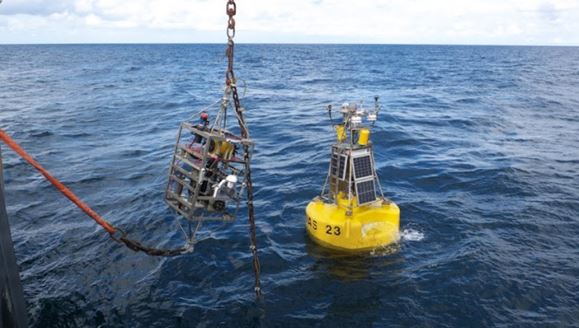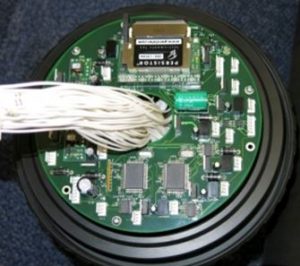
Scientists select Newbury Electronics’ PCBs for mid Atlantic data buoy
Newbury Electronics has supplied three individually crafted PCBs for installation in the newly refurbished data buoy that forms the hub of the Porcupine Abyssal Plain (PAP) Observatory. Two of the PCBs will be located in the large data buoy which is anchored approximately 500 km off the Irish coast, whilst the third PCB will be installed in the sensor frame hanging 30m below the surface buoy.

Jon Campbell of the Ocean Technology & Engineering Group at the National Oceanography Centre,Southampton, said; "We have worked with Newbury Electronics for over 20 years and their skills and engineering expertise has grown and developed alongside our own expanding research, a desire for more and more data and other developments in scientific technology. This newly refurbished buoy will allow near real-time data collection and will provide our scientists with a wealth of information about the temperature of the sea, oxygen and CO₂ concentrations, nitrate levels and acidity to name but a few."
"It is great to be involved with research projects of this nature and we relish the opportunity to produce the highest calibre of PCBs; you don't get a second chance when the completed unit is suspended under the Atlantic ocean!"; said Philip King, Managing Director at Newbury Electronics.
The submerged Data Concentrator Hub will operate from within a pressurised housing and is connected to the buoy via an armoured cable which provides a 30v power supply and RS-232 communications. Up to 12 sensors can be connected to the hub at the heart of which is a Persistor CF2 micro computer. The finished PCB will have a diameter of 178mm with a central hole to allow the necessary wires to reach the onboard connectors. There will also be an interface to an external compass module and there is a 3-axis accelerometer mounted on the board.
If all goes well with the final assembly the newly refurbished buoy and the associated hub will be deployed later this summer.
* The Porcupine Abyssal Plain (PAP) Observatory is a sustained, multidisciplinary observatory in the North Atlantic coordinated by the National Oceanography Centre, Southampton. For over 20 years the observatory has provided key time-series datasets for analysing the effect of climate change on the open ocean and deep-sea ecosystems.


